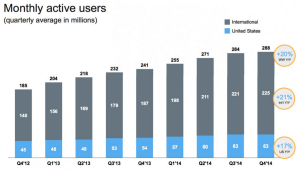DV joins Common Sense program
May 27, 2018
Contributions by Claire Zhang, Staff Writer
In response to the growing popularity and dangers of the Internet and social media, Dougherty Valley High School has applied and been approved to become a Common Sense School, an honor given by the Common Sense Media organization to recognize schools who show a commitment towards fostering healthy digital citizenship.
Common Sense Media is a nonprofit organization dedicated to helping students successfully and safely navigate the increasingly complex world of media and technology. It offers a multitude of resources on a wide variety of technology topics intended for parents, students and educators to use and apply. These topics range from media literacy and fake news to online body image and mental health.
Given the intensifying need for excellent digital citizenship in today’s world and the interest from the San Ramon community, administrators felt motivated to bring Dougherty under the Common Sense Media umbrella. In order to become approved, each grade level was trained in three Common Sense lessons. Every teacher underwent an hour-long professional development session on implementing Common Sense curriculum, and three outreach pieces were presented to the community. After this lengthy application process, Dougherty was approved by the organization on April 24, granting teachers access to resources and lesson plans to selectively employ in different curricula. The details of the action plan are currently being determined to give way to a smooth implementation in the coming school year.
Beyond the technical aspects of this curriculum, administrators and teachers also hope that these new lessons will motivate students to change the way they interact online. Students today live two lives in two realms: one in front of people and the other in front of a screen. The latter is frequently brutal. The trend of cyberbullying in the age of technology is a vicious cycle of inflicted pain, further intensified by the relative anonymity the Internet provides.
Students hide behind screens and type out hurtful comments, emboldened by the inconspicuous nature of certain social media platforms. The more time students spend on social media, the more brazen they become and the more pain they are capable of causing, a positive feedback loop resulting in hurt on all sides, and one accompanied by the classic bystander effect.
Vice Principal Mr. Jared Gagnon believes in the power of Common Sense lessons to inspire students to speak up about what they see online:
“No one wants to get involved. I get it. At this age, we want to be invisible. We don’t want to cause waves, we want to just like go about our business and move on. Regardless of if the person next to you is suffering because ‘as long as it’s not me, I’m good’ … but how we combat negative things online is really by getting them to be taken down, getting people not to say them,” Gagnon stated.
The disturbing trend of cyberbullying is part of a larger problem — students do not recognize the real-life implications and consequences of online antics.
Social media, in other words, is disengaged from “real life.” A picture on Snapchat can last for 10 seconds for up to one day. Instagram posts last as long as the owner wants them to. Because of this idea that the user is in control of everything they choose to display over social media, there is no permanence to the entire ordeal. And this in turn propels students to act over social media in ways unthinkable to act in person, whether through cyberbullying, sending nude photographs, or forfeiting privacy to feel relevant.
“To have those real world consequences seems to always surprise students when they happen. Then they’re like, ‘Oh it is just the Internet; oh it was just a joke.’ But you know, we’ve done the Words Matter programs. Internet words matter too. It’s not just how you treat people in person that online. If anything, our interaction is more so online than in person. You have a greater audience online than you do in person,” Ms. Dana Pattison, an overseer of the Common Sense application process at Dougherty, said.
Because it’s simply not realistic to abstain from social media, the burden falls on students to instead be responsible and careful online — something that Common Sense Media can help with.
On officially bringing Common Sense Media to Dougherty, Gagnon expressed that “anything we can do to help students feel more comfortable [online], I think, is a good use of time. Schools are not all about just academics … how you feel really matters, and I think that’s why anything we can do with that is important.”

